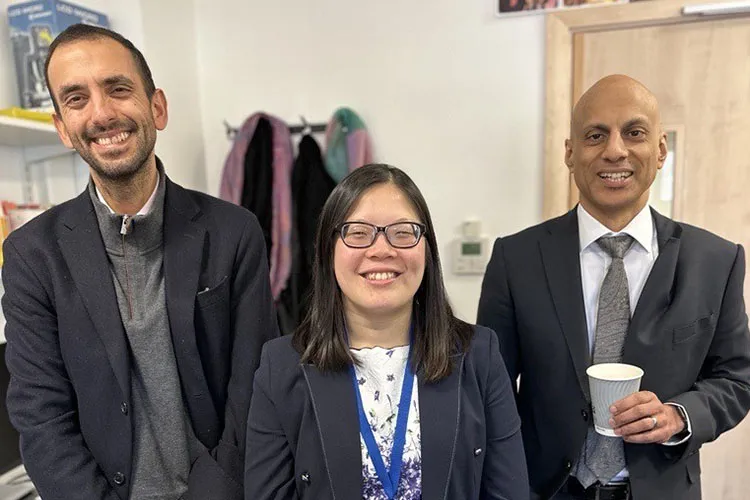We caught up with Charis Wong following her successful defence of her PhD thesis on improving drug selection for clinical trials in motor neuron disease. This article summaries her findings, the personal significance of completing a PhD, and her future career path.
What did your PhD focus on?
My PhD focused on improving drug selection for clinical trials in motor neuron disease (MND), specifically MND-SMART. I developed a system to gather, process and present different types of data to inform experts on deciding which drugs to study further and take forward to test within the trial. I used data from published studies, large scale drug screening in cells in the lab, analysing pathways and networks associated with MND and gathering data from publicly available drug, chemical and clinical trial databases. I use automated processes and artificial intelligence techniques to make this process possible. I build interactive web apps to produce living evidence summaries to inform the expert panel on drug prioritisation and selection. With the team including members with expertise in trials, lab studies, pharmacology, and drug screening, I reviewed the process following each round of selection and made improvements to our approach.
What did you find out?
I showed that this approach of using different types of data to inform decisions for drug selection to be feasible. Being able to pull different types of data together enabled us to evaluate drugs in a more efficient manner. We were able to identify up drugs with supportive evidence in different data types. We also identified drugs which were not suitable for trial at an earlier stage so that we can redirect our efforts and resources on promising drugs.
Have your findings been published?
In the lead up to the work above, I published 3 first-author papers. For the first paper, to better understand challenges in MND trials, I did a systematic review of previous MND clinical trials. Limitations in our understanding of disease biology and disease related factors hindered timely and definitive evaluation of drugs in previous trials using traditional trial design. Noting advances in trial design, outcome measures and disease understanding, we proposed that future trials should be more efficient, flexible, scalable, inclusive, and accessible.
This work is published in Brain Communications (https://doi.org/10.1093/braincomms/fcab242)
Noting the above, we developed the MND-SMART trial. My second publication was the MND-SMART trial protocol publication where I was joint first author with Dr Rachel Dakin, who was our former MND-SMART trial manager.
This work is published in BMJ Open (https://doi.org/10.1136/bmjopen-2022-064173)
The third publication outlined the selection of the first two arms of MND-SMART. We developed a systematic, comprehensive evidence-based approach using data from published literature to inform experts on drug selection.
This work is published in BMJ Open (https://doi.org/10.1136/bmjopen-2022-064169)
What advice would you give anyone considering a PhD?
Doing a PhD can be very rewarding, but is not for everyone. Find out if it's for you - choose a broad area which you are interested in, and speak to potential supervisors, team members, current and recent PhD students. Choosing your supervisor and team is arguably more important than the specific area as you'd be spending a lot of time with them, and the right fit can be transformative.
What opportunities did being an Anne Rowling Clinic Clinical Trial Fellow open up to you?
Being a Clinical Trial Fellow in the Anne Rowling Clinic enabled me to gain first-hand experience of various research studies across neurological conditions. This provided a good foundation to develop knowledge, skills, and networks, while enabling me to explore areas of interest for my PhD. It also helped shape my aspirations where we might apply the Clinic's ethos of integrating the best health care with the best health research across clinical neurology.
What are you doing now and what is next?
I'm now back in clinical neurology training and am due to complete this in July 2025. Alongside my clinical work, I am continuing my research on improving our methods in gathering and processing data of different types to guide drug selection for MND and applying our approach to other neurodegenerative diseases.
Anything else you'd like to add?
I am very grateful for the many people who I've met and connected with during my PhD, including many people with neurological conditions who have participated in research studies. Thank you!
Related links
MND-SMART website
Anne Rowling Regenerative Neurology Clinic's Clinical Trial Fellowships
Photograph supplied by Dr Charis Wong (left to right: Professor Paresh Malhotra - Imperial College London, Dr Charis Wong - University of Edinburgh, Dr Manoj Lalu - University of Ottawa)


